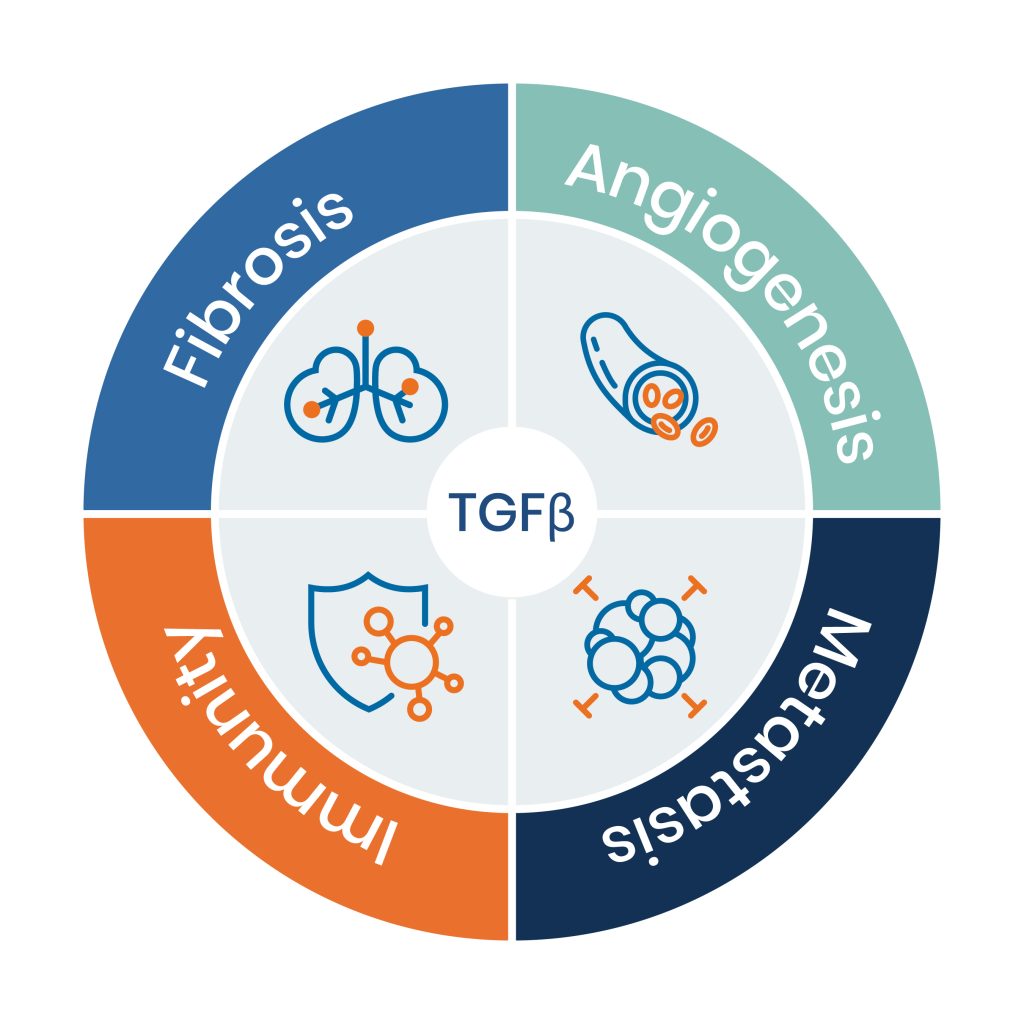What do U.S. fraternities and sororities, the Bible, COVID-19 (e.g., the alpha, delta, omicron variants) and EpicentRx’s AdAPT-001 oncolytic adenovirus have in common?
Answer: Ancient Greek letters.
EpicentRx’s AdAPT-001 oncolytic adenovirus carries a “TGF-beta trap.” This is a protein, which binds to and neutralizes the omnipresent cytokine, TGF-beta (TGF-β).
So, what is TGF-β, what does it do, and how was it named?
TGF-β is a secreted cell signaling protein or cytokine with a range of functions that in late-stage cancers are highly detrimental. These include a) Immune suppression and anti-inflammation, which inactivates checkpoint inhibitors and other immunotherapies; b) Abnormal new vessel formation or angiogenesis, which compromises oxygenation of tumors and delivery of chemotherapy and immunotherapy to tumors; c) Fibrosis, which drives disease progression; and d) Tumor spread or metastases. These are four good reasons to inhibit TGF-β overexpression in tumors with the TGF-β trap that the AdAPT-001 oncolytic virus carries.
The beta in the name distinguishes TGF-β from TGF-α, which was discovered earlier. Unlike the anti-inflammatory TGF-β, TGF-α is a proinflammatory cytokine. Another significant difference between the two cytokines is that TGF-β does not bind to the same receptors as TGF-α.
The Greek letter that comes after beta is gamma, and the pro-inflammatory cytokine interferon gamma (IFN-γ) is on par with TGF-β in terms of its importance in cancer. AdAPT-001 stimulates production of IFN-gamma, which counteracts several of the effects of TGF-β.
The mission of AdAPT-001 in cancer is remission so that patients can return disease-free to a normal life after treatment.

